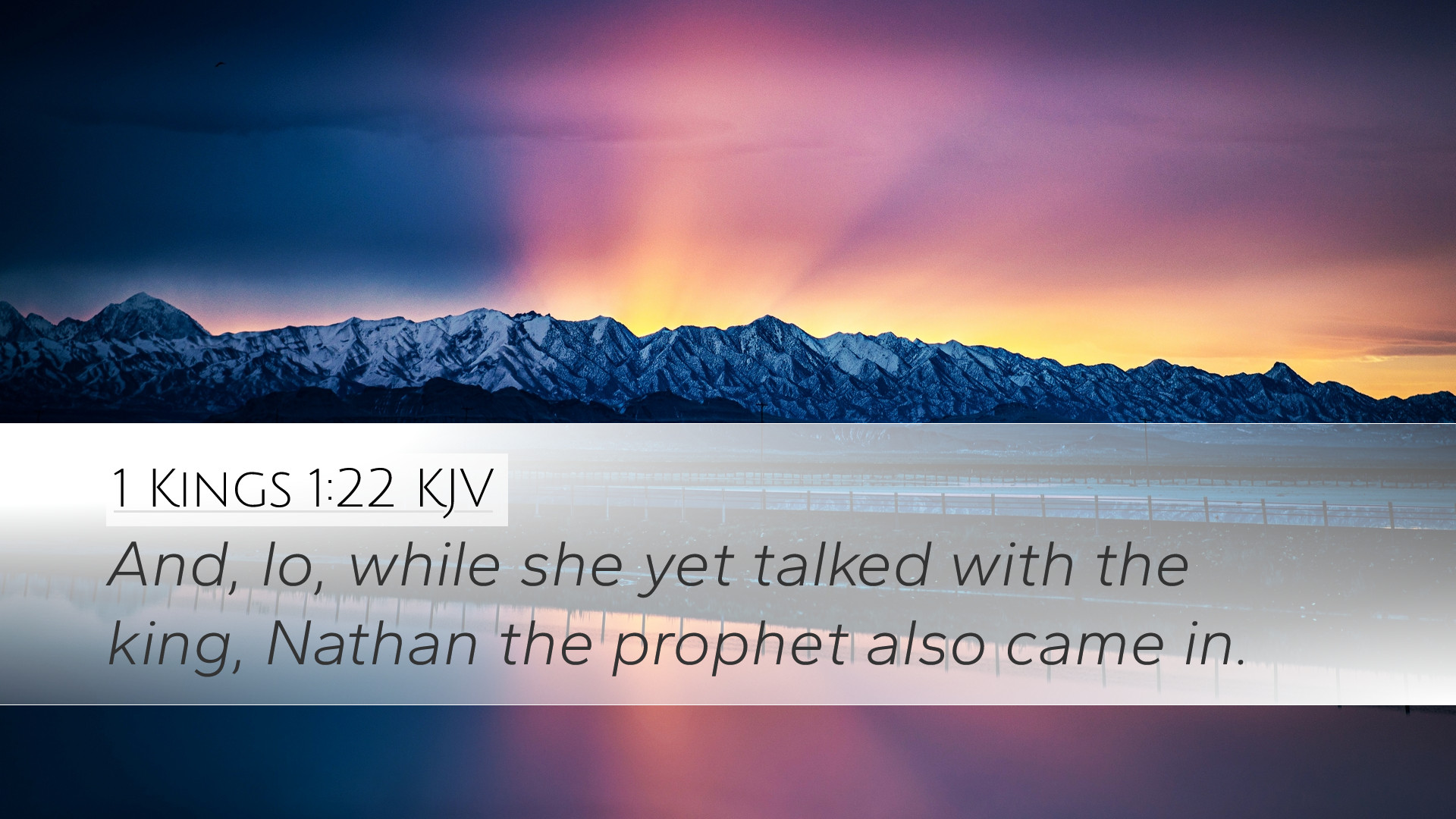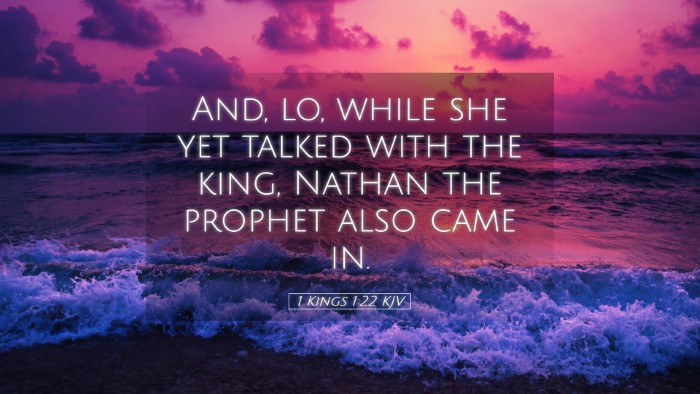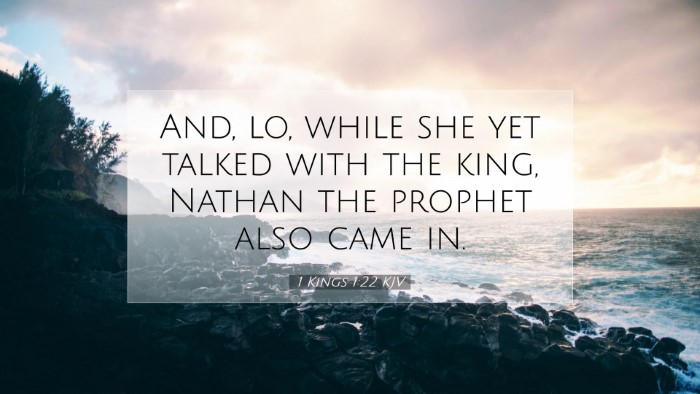Commentary on 1 Kings 1:22
Text of the Verse: 1 Kings 1:22 - "And, lo, while she yet talked with the king, Nathan the prophet also came in."
Introduction
The context of 1 Kings 1:22 is rooted in the intrigue surrounding the succession of King David. In this moment, we witness a critical turning point, both politically and spiritually, as the rightful heir to the throne is brought front and center.
Contextual Analysis
This verse captures a scene where Nathan the prophet enters while Bathsheba is speaking with King David. The prophetic voice is essential in the life of the monarchy, as it often serves to affirm or challenge the king's decisions and directions. This particular moment builds upon the tension regarding the succession, especially with Adonijah, David’s son, positioning himself for kingship.
Insights from Matthew Henry
Matthew Henry emphasizes the significance of Nathan's timely arrival. His presence illustrates the divine orchestration of events. Henry notes that the work of God is often conducted through the entrance of faithful servants at crucial moments. Nathan, as a prophet, symbolizes the voice of God amidst human plans, affirming that the outcome of the royal succession is not merely a political maneuver but a fulfillment of God's will.
Albert Barnes’ Perspective
Albert Barnes highlights the urgency of the moment, describing how Bathsheba's dialogue with David is interrupted by Nathan's entry. This contributes to the unfolding drama regarding the legitimacy of Solomon's claim to the throne. Barnes interprets Nathan's arrival as a divine intervention, suggesting that God's plans cannot be thwarted by human schemes. He further asserts that this illustrates the theme of God's sovereignty throughout the narrative.
Adam Clarke's Interpretation
Adam Clarke provides additional depth to the interpretation by noting the tension present in this encounter. He remarks on the contrast between Bathsheba’s plea for her son Solomon and the aspirations of Adonijah. Clarke argues that Nathan's presence serves to validate Bathsheba's plea and to reinforce the claim of Solomon. His commentary underscores the role of the prophet as an agent of God's revelation, bringing correction and direction during a time of potential conflict.
Theological Implications
The interplay between Nathan and Bathsheba brings forth significant theological reflections. It highlights the importance of divine revelation through prophetic ministry. The arrival of Nathan while Bathsheba speaks suggests that God’s plan is unfolding simultaneously among human actors. The secured reign of Solomon, noted in the following verses, reaffirms God’s covenant faithfulness and His sovereign choice amidst turbulent times.
Pastoral Applications
For pastors and church leaders, this passage serves as a reminder of the necessity for prophetic voices in contemporary ministry. It advocates for being sensitive to God's timing and movement in leadership decisions and church governance. Additionally, it encourages pastors to seek the wisdom and guidance of God, ensuring that their leadership aligns with divine purpose.
- Encouragement of Prayerful Seeking: Just as Nathan played a crucial role in the succession, leaders must seek God earnestly to discern His will.
- Recognizing Divine Interventions: This passage teaches that God is actively involved in human affairs, prompting leaders to remain open to His direction.
Conclusion
1 Kings 1:22, while a brief verse, encapsulates profound truths regarding divine sovereignty, the prophetic role, and the unfolding of God's plans through human agency. As this narrative progresses, it urges the faithful to recognize the continuous work of God among them, prompting both humility and hope as they witness His purposes at work.


